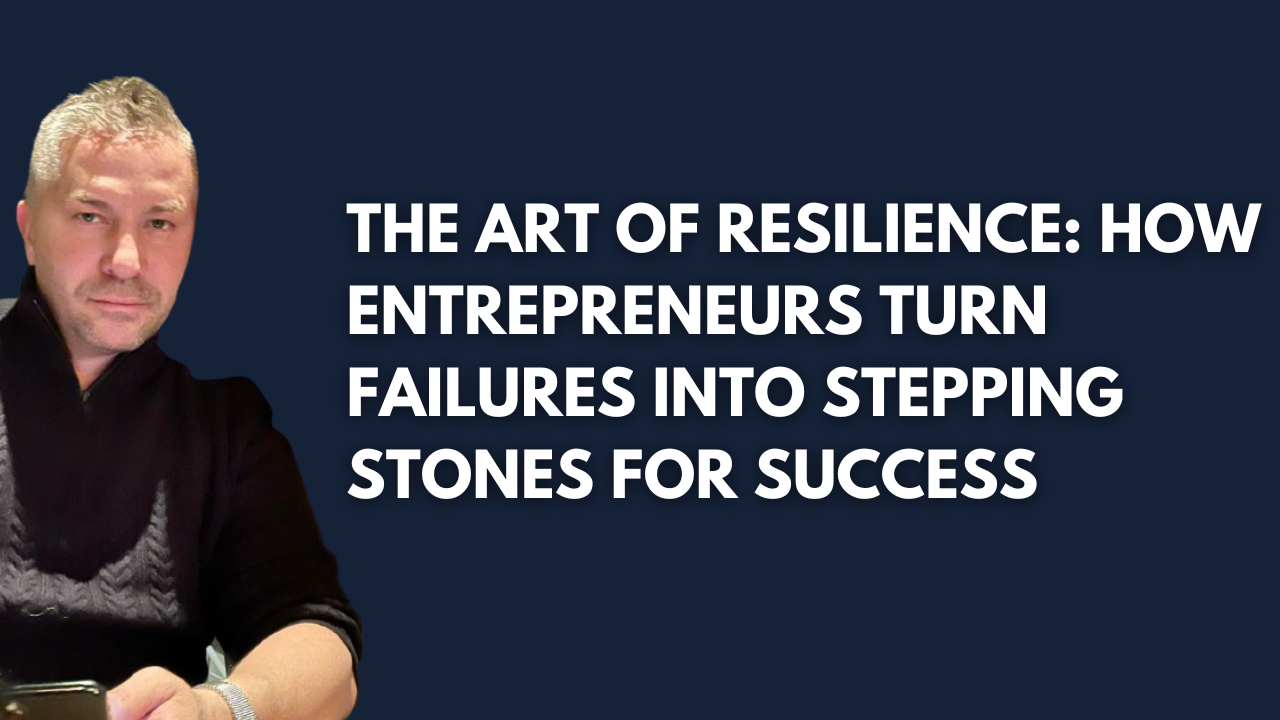Entrepreneurship can be a journey filled with remarkable highs and disheartening lows. While many envision the freedom and excitement of being their own boss, the reality often includes challenges that test one’s patience, adaptability, and courage. Resilience, or the ability to recover quickly from difficulties, is an indispensable quality for anyone embarking on this path. When entrepreneurs face failures—and they will—how they respond often determines whether they ultimately succeed. Here’s how resilience can transform setbacks into stepping stones for entrepreneurial success.
1. Redefining Failure: A Learning Opportunity
Failures can often feel like a full stop, but for resilient entrepreneurs, they serve as a learning curve. Instead of labeling a setback as an outright loss, view it as valuable feedback. The mindset shift from “I failed” to “I learned something” can be powerful. Resilience is about seeing every challenge as a unique opportunity to refine your skills, correct missteps, and improve your business model.
Example
Consider the story of James Dyson, the inventor behind Dyson vacuum cleaners. Dyson faced over 5,000 prototypes that didn’t work before finally landing on the vacuum design that revolutionized the market. Rather than viewing each attempt as a failure, he saw it as an iteration closer to his final vision. His journey was long and riddled with setbacks, but each “failure” taught him something that improved his next model.
2. Cultivating a Growth Mindset
A growth mindset is the belief that skills and intelligence can be developed over time. Entrepreneurs with a growth mindset view effort as a pathway to mastery. They understand that while setbacks are inevitable, resilience allows them to view obstacles as opportunities to hone their skills and expand their capabilities.
How to Cultivate It
To build a growth mindset, start by reframing your self-talk. Instead of thinking, “I’m not good at this,” say, “I’m not good at this yet.” Practice gratitude, not only for successes but for setbacks that reveal blind spots or weaknesses. When you’re grateful for failures, it becomes easier to embrace resilience, learn, and adapt.
3. Building Mental Toughness: Grit and Determination
Mental toughness is about grit, the ability to persevere toward a goal despite obstacles. In entrepreneurship, grit is often the difference between those who give up after their first major setback and those who push forward until they reach success.
Ways to Strengthen Mental Toughness
Resilient entrepreneurs regularly set small, achievable goals to build their confidence. Breaking down a larger objective into manageable parts makes it less intimidating and keeps motivation high. Celebrating small victories reinforces the idea that progress is being made, even if it’s slow. Additionally, meditation, journaling, and mindfulness exercises can help in maintaining calm under pressure, making it easier to face challenges head-on without burning out.
4. Embracing Change and Adaptability
Resilience in entrepreneurship also means being open to change. The market, consumer preferences, and industry standards constantly evolve, and so must your business approach. Learning to pivot—whether it’s adjusting your product, marketing strategy, or operational structure—is a critical component of resilience.
Example
Slack, one of the most popular communication tools used in businesses today, started as an online game company. When the founders realized the game wasn’t taking off, they observed that their internal communication tool had great potential. By shifting focus and adapting to demand, they turned a failed venture into a billion-dollar success story.
5. Developing a Strong Support System
Having a support network of friends, mentors, or fellow entrepreneurs is key to maintaining resilience. This community can offer advice, provide constructive criticism, and, perhaps most importantly, offer emotional support during tough times.
How to Build It
To develop a strong support network, consider joining entrepreneurial communities, attending industry events, or engaging with mentors who understand the ups and downs of running a business. Having a team you can rely on, both inside and outside of work, can provide perspective, reminding you that you’re not alone in your journey.
6. Leveraging Setbacks to Innovate
Resilience goes beyond surviving failures; it’s also about using those experiences to innovate. Many entrepreneurs discover new paths precisely because their initial plan didn’t work out. When something fails, take the time to analyze what went wrong, identify gaps, and think creatively about alternative solutions.
Example
Airbnb founders, Brian Chesky and Joe Gebbia, originally rented out air mattresses in their apartment to cover rent, but their model wasn’t scalable. However, instead of abandoning the idea, they refined it, focusing on short-term rentals and transforming it into a platform that has since changed the travel industry.
7. Practicing Self-Care to Boost Resilience
Self-care isn’t just a personal matter; it’s an entrepreneurial strategy. Regularly investing time in physical, mental, and emotional well-being builds the endurance needed to tackle challenges. Physical activity, adequate sleep, and proper nutrition can all support resilience by reducing stress and boosting mental clarity.
Why It Matters
Burnout is real, and it can drain even the most ambitious entrepreneur. Taking regular breaks, exercising, and maintaining hobbies outside of work can keep you motivated and balanced. When you’re in a good headspace, you’re better equipped to handle failures constructively.
Final Thoughts
Entrepreneurship is a journey marked by both triumphs and trials. It’s not the absence of failure that defines success, but the ability to rise after each fall, armed with new insights, strategies, and a reinforced spirit. Cultivating resilience means embracing each setback as a stepping stone toward growth. By building a resilient mindset, you prepare yourself not only to withstand difficulties but also to thrive in the face of them, ultimately positioning yourself for sustained success in business and life.

